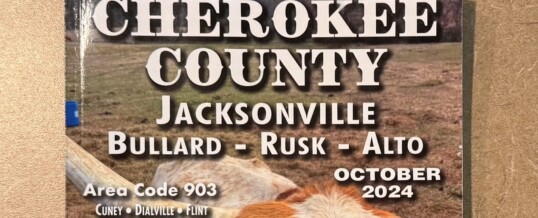
For those of us who once made our living working on the radio, one of the main competitors we had for advertising dollars was the phone book. Specifically, the Yellow Pages.
If you aren’t familiar with phone books, they were issued annually to folks who had a landline phone and included almost everyone’s name, address, and phone number. The Yellow Pages were in the back and were (as the name implies) yellow. If you wanted your business to appear there, you paid a lot for it.
That’s why the folks in radio, newspaper, and television who sold advertising didn’t care for the competition the Yellow Pages brought. A Yellow Pages ad could cost as much as what a business would spend for half a year on a radio station.
So, if you were trying to make your living getting a business to buy airtime on your station, you didn’t want to hear that a business owner was working on their Yellow Pages ad. Especially if it was a full-page Yellow Pages ad. Those were very expensive.
Today, phone books are about as common as phone booths. You just don’t see them much. Phone books are still published, but they normally include several communities, or even entire regions of counties.
The phone books of today bear little resemblance to the phone books of a half-century ago. For one thing, the size is much, much, smaller now. The Dallas and Houston phone directories used to be so thick that Tom Cruise could sit on one to see over the dash of his Porsche.
Information that we now try to protect and hide so that someone doesn’t steal our identity was once found in the phone book. As a matter of fact, if you wanted an unlisted number, you had to pay a hefty sum to keep it out.
I should know. I was one of those people who needed my name and number omitted from the book. People wouldn’t hesitate to ring an announcer up at their home for song requests, or just to chat about a something they’d heard on the radio.
Seriously.
I don’t remember what it cost to have an unlisted number, but John Moore is a common name. So common that if I ever ran into the other poor souls who share my name, they would often tell me that people had called them looking for me.
John Moore (not me): “Hello?”
Caller (looking for me): “Is this the John Moore on the radio?”
John Moore (still not me): “No. I work at a bank.”
Caller (still looking for me): “Do you know the John Moore that’s on the radio?”
John Moore (still not me, but now getting agitated): “No. I do not.”
Caller: “Well, if you see him, would you ask him to play, ‘Lookin’ for Love,’ and dedicate it to Darlene?”
The phone book was the go-to source if you wanted to give someone a call or look up their address.
Today, we don’t need a phone book. We store everyone’s contact information in our phones. Not just their information, but a picture or video of them. When they call, we can see who it is and even send it to voicemail if it’s another John Moore who’s still trying to pass along a radio request.
In the old days if a call annoyed you, you could slam the phone down and hang up on them. I don’t recommend slamming your phone down today. Especially if you still have payments on it.
There are many aspects of the old phone systems I miss. The rotary dial, the fact that everyone’s phone had the same ring, and the phone book, which was kept either under the phone on a desk, or on a nail on the wall.
The local phone directory was something we not only wanted, we expected to get one from Ma Bell. Back then, it cost $3 a minute to call your aunt in Chicago, so the least they could do is give you a free book that you had to pay extra to keep your name out of it.
©2025 John Moore
John’s books, Puns for Groan People and Write of Passage: A Southerner’s View of Then and Now Vol. 1 and Vol. 2, are available on his website TheCountryWriter.com, where you can also send him a message.
APR
2025
